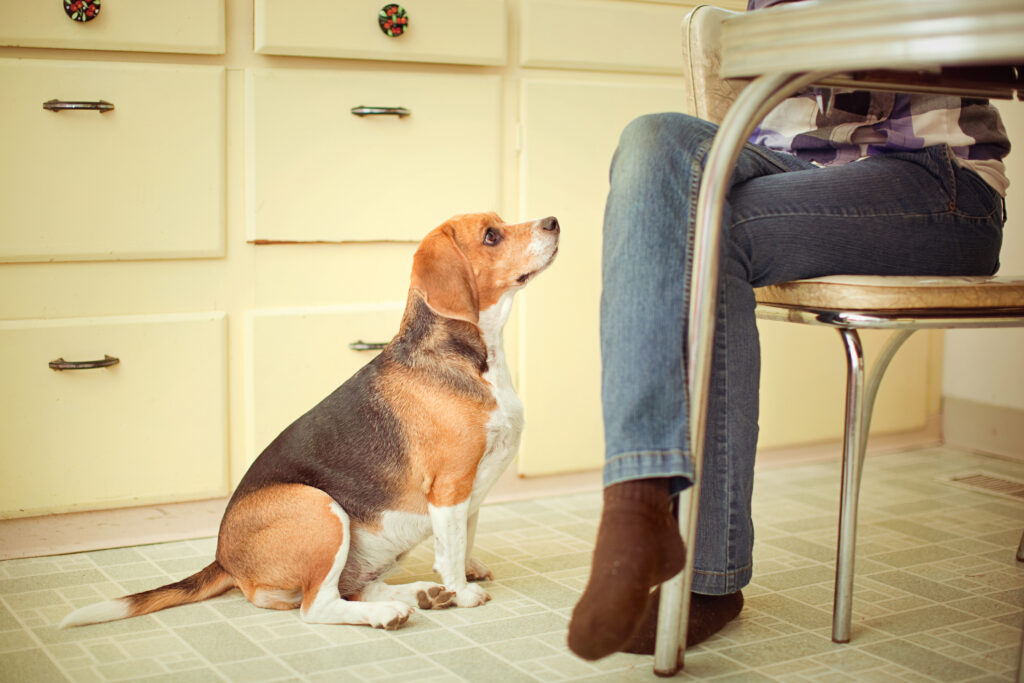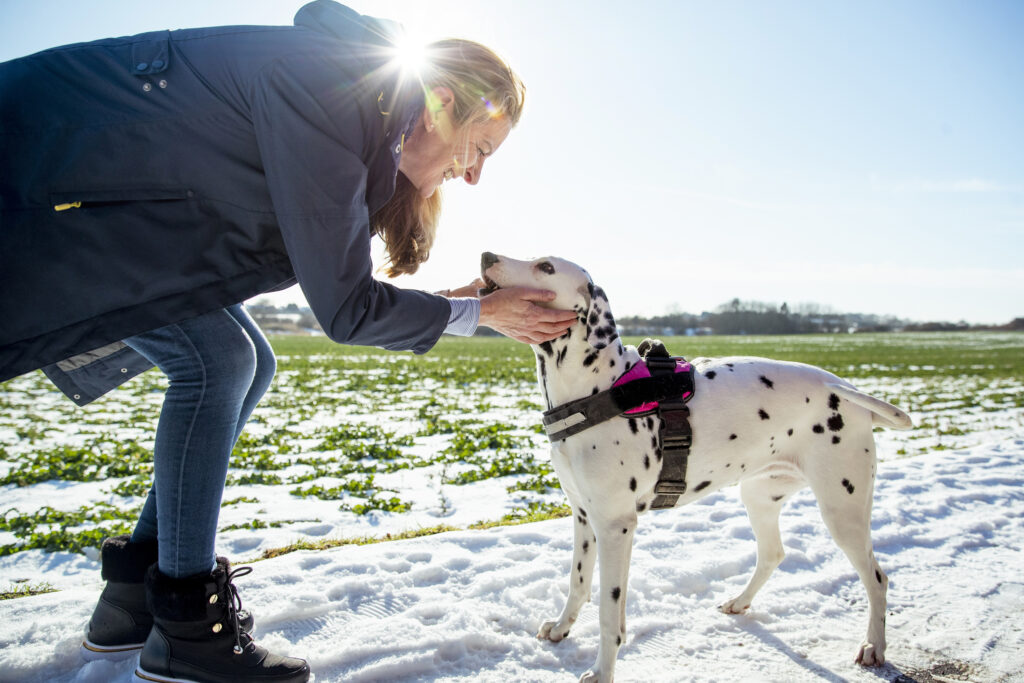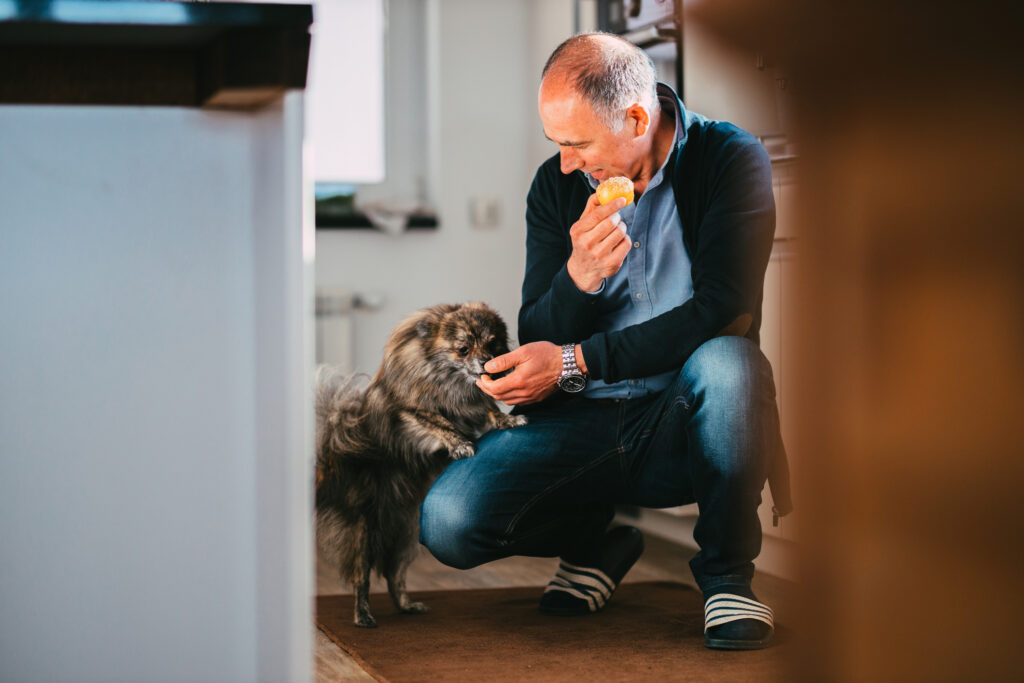
At the start of every new year, how many of us reflect on how much we’ve overeaten over the Christmas period, regretting those extra turkey sandwiches and mince pies.… but what about your pets? Did they overindulge too?
If that’s the case, there is no better time to make a fresh start for yours and your pet’s health!
Make it a pawfect start to 2022!
According to the PDSA, there has been a big increase in pet obesity, but only a small number of owners are aware of what a healthy weight is for their pet or the health complications that can be associated with obesity.
As a pet owner, if you are proactive with monitoring and managing your pet’s health, there is no reason why they can’t lead a happy and healthy life. One of our Vets at our Lincoln surgery, Olivia Mawson said, “Obesity reduces the quality of your pet’s life; and for some, weight gain can also be an indicator of an underlying health issue such as arthritis, diabetes, bladder problems, breathing issues or liver disease. So, the importance of getting your furry friends checked out by your Vet early is crucial.”
To support your pets’ health, The Pet Vet offers weight clinics and, similar to us humans, it’s often the best route to get good advice and kick start a weight loss regime. At our clinics, a Veterinary Nurse puts together a tailored 10 week plan and rechecks your pet every two weeks. Typically owners will start to see results within the first two weeks.

When the programme has been completed, it’s really important to keep your pet on a maintenance plan – don’t go slipping back to old ways! Remember that you and your family must be totally committed to managing your pet’s weight. Don’t forget that the odd titbit from the table and not enough exercise will put the pounds back on.
Our Nurses are very happy to continue with check-ups and provide support to prevent the weight returning.
For more information on the weight management services we offer
Exercise
During any weight management programme whether it be for you or your pet, the health professionals will always tell you to get more exercise. So… did you know that January is ‘Walk your dog month’? No need to sign up for the gym this January, just take your beloved pooch out for a gander; what better and healthier way is there than to kickstart the year than with fresh air and exercise!
There are so many benefits to walking for both you and your dog. It’s one of the best cardio exercises, helping to reduce the risk of disease through inactivity.
If working from home is now your new normal, it’s important to get regular breaks so grab the lead, don the walking boots and get a change of scenery with your dog for 15 minutes a couple of times a day. Not only could it boost your mood and increase your productivity at work… but it will also improve your relationship with your faithful furry friend and even give you the chance for a bit of social interaction with other dogs and owners!
Of course, often the main reasons for not going outdoors in the winter is that we are simply ‘too busy’ or ‘it’s too cold’ – so health goals, such as a daily step count or a monthly weight loss target could be all it takes to keep you motivated! There are many devices and apps available that could help you keep on track.

Here are some winter walking tips to keep you and your dog safe:
- Both you and your dog should dress appropriately for the weather, wear brightly coloured or reflective clothing. Also consider reflective collars and leads. If you need a coat, maybe your dog does too, particularly if they are very young, old or have conditions such as arthritis.
- Stay in well-lit public areas.
- If you’re taking a long walk, make sure your dog has access to fresh clean water.
- The wintery ground can be nasty for dogs’ paws, so keep them protected from ice, snow, de-icers and grit and wash them down after a walk.
Read more about how to keep your pets tip top in winter in this blog – read more here.
How can I tell if my pet is overweight?
There are a few simple checks you can do at home to assess the weight of your pet. One of our Rotherham Vets, Louise Scanlon gives some quick tips on how to make these checks.
Have a really good look and feel of your pet from all angles. Run your hands along your pet’s sides, back and abdomen to check if they are a healthy weight:
- You should be able to easily see and feel your pet’s ribs, spine and hipbones but they shouldn’t stick out, being underweight can be as dangerous as being overweight.
- They should have a waist that is smooth, tucked in and not bulge out and clearly visible when looked at from above.
- On dogs, they should not have any build-up of fat where its tail meets its back.
- With cats, their belly shouldn't appear to be saggy underneath, there should only be a small amount of fat in this area.
If you are in any doubt about the health of your pet or are not able to keep them at a healthy weight, call into The Pet Vet for advice.
Healthy eating habits
As the owner of your pet, it’s your decision on what food to give them. The internet is full of advice, but what’s important is that each and every pet needs good, wholesome, well-balanced food in the correct quantity to give them the energy and nutrition to lead happy, long and fulfilled lives.

Food
First and foremost, consider your pet’s needs as they will require a well-balanced diet to keep them happy and in shape. Their food must be suitable for their health needs (e.g. allergens), their lifestyle (e.g. level of activity) and their age (a puppy or kitten’s needs are completely different to an adult or senior pet).
Whatever you decide to feed your pet, make sure they are fed at least once per day unless a Veterinary Professional advises otherwise. Puppies, kittens and older pets may need smaller more frequent meals for example.
Follow the suggested feeding guides on your pet’s food to understand what the right amount should be. You may need to adjust the quantity to match their lifestyle needs.
Food intended for human consumption may not be suitable for your pets; it’s possible that it will not provide the nutrition they need and could potentially be poisonous.
Check out our blog on foods to avoid here
Water
Ensure your pet always has access to fresh clean water. This is just as important as giving them the right amount of food as they can become seriously ill quite quickly without water.
Treats
Everyone loves a treat and of course, so do our furry friends! Like us, the key is moderation! Treats are not a substitute for a well-balanced meal, so be mindful about what and when to offer. Some owners find that treats help with training, others give treats as an opportunity for greater interaction with their pets.
Monitoring changes
Any unprompted changes to your pet’s eating or drinking habits, could be a sign of an illness and so it’s important to talk to your Vet if you have any concerns. If you would like to discuss your pet’s weight, their eating habits or need some extra advice in getting your pet back on the road to a healthier and happier life, we’d be delighted to help.
